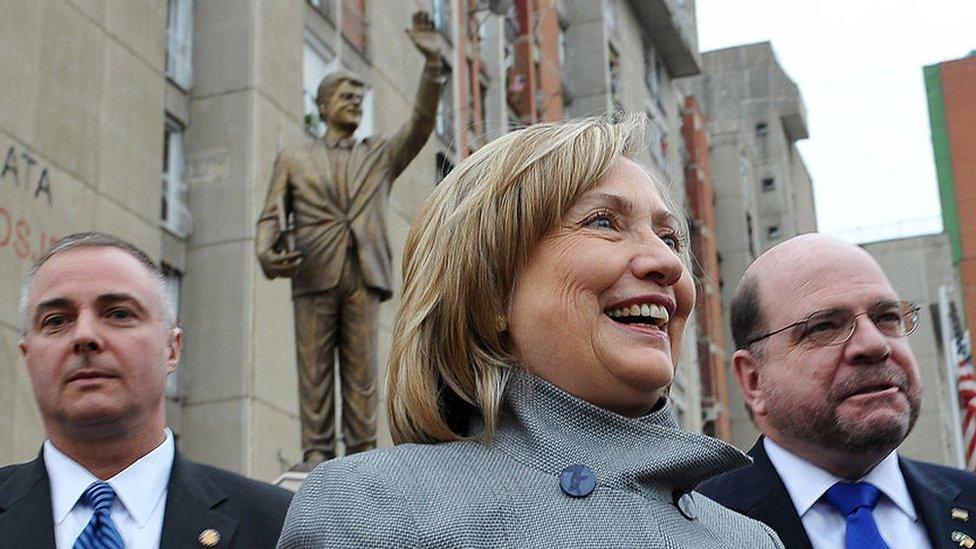Serbia protests: Anger, eggs and chanting at 'anti-dictatorship' rallies
- Published
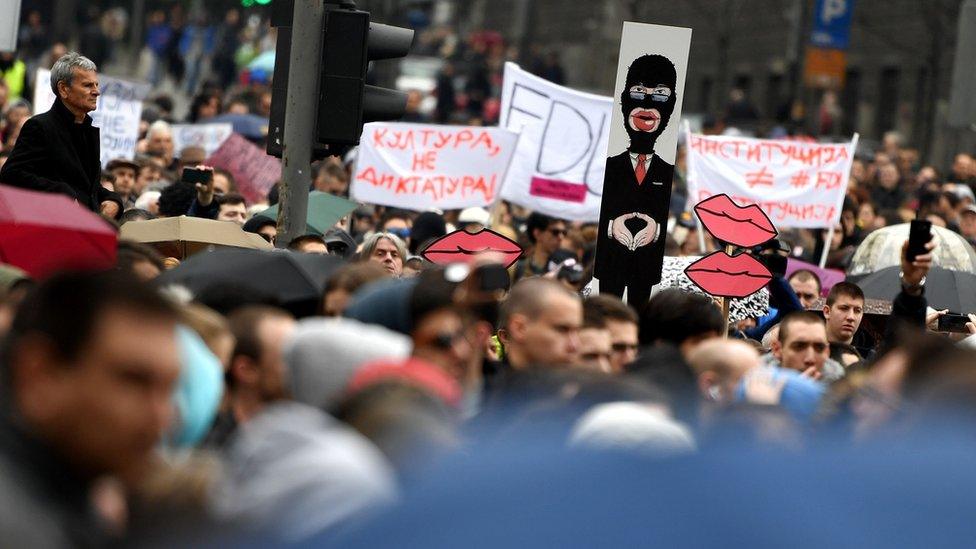
A protester holds a caricature of Serbia's new president, Aleksandar Vucic
Every evening at 18:00, rolling roadblocks seal off streets in Belgrade's city centre.
Police Fiat Puntos zip around the capital, closing then opening roads to traffic, as a phalanx of whistling, chanting, drum-beating protesters make their regular calls: the National Assembly, Republic Square, the headquarters of state broadcaster RTS.
Some lob eggs; others chant slogans. Eventually, with a cry of "see you tomorrow," the crowds disperse - and their roars are replaced by the whine and swish of unleashed trolley buses. It is a routine that has been repeated every day since Serbia's presidential election on 2 April.
That vote returned an overwhelming majority for PM Aleksandar Vucic, who easily passed the 50% threshold to avoid a second-round run-off. His closest challenger, erstwhile ombudsman Sasa Jankovic, was a very distant second, with 16%.
But rather than despair at the dire lack of cohesive opposition to Mr Vucic and his Progressive Party (SNS), some of his detractors decided to take direct action in Belgrade and other cities.
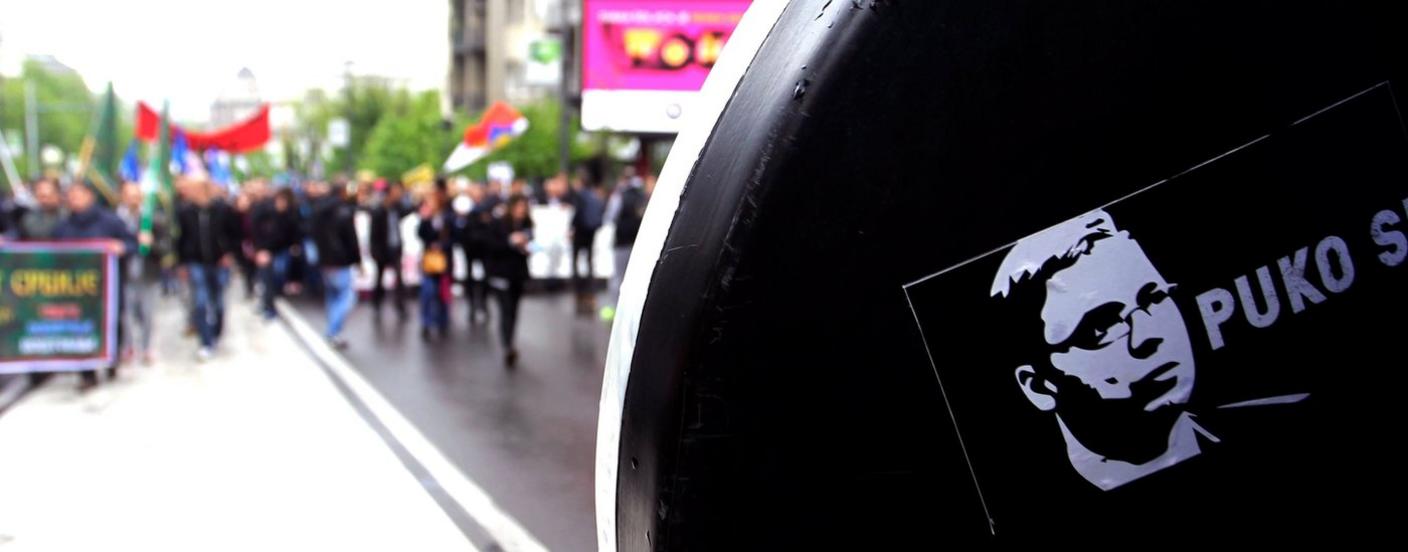
The protests have been taking place daily at 18:00
Most of the protesters are of university age. Political party symbols are conspicuous by their absence. Instead, placards and banners proclaim the crowd - numbering thousands - to be "anti-dictatorship", a reference to claims that Mr Vucic is behaving in an increasingly authoritarian manner.
"Young people who want something new for this country have gathered here," said journalism student, Milena Gojkov, during Friday's protest.
"Many young people who work and are highly educated don't want to continue enduring a dictatorship of uneducated people."
Read more
A key complaint is that media outlets are heavily biased towards the SNS. One analysis suggested more than half the pre-election media coverage focused on Mr Vucic, with that figure rising beyond nine-tenths when reporting of his activities as prime minister was included.
A heavy dependence on advertising from state-owned businesses and agencies has raised concerns of self-censorship and government interference. Protesters have taken to buying and carrying copies of Danas, a newspaper critical of the government, which has been struggling to attract advertisers.
"The people voted like this because nobody had access to the media," said a protester who gave his name as Stefan.
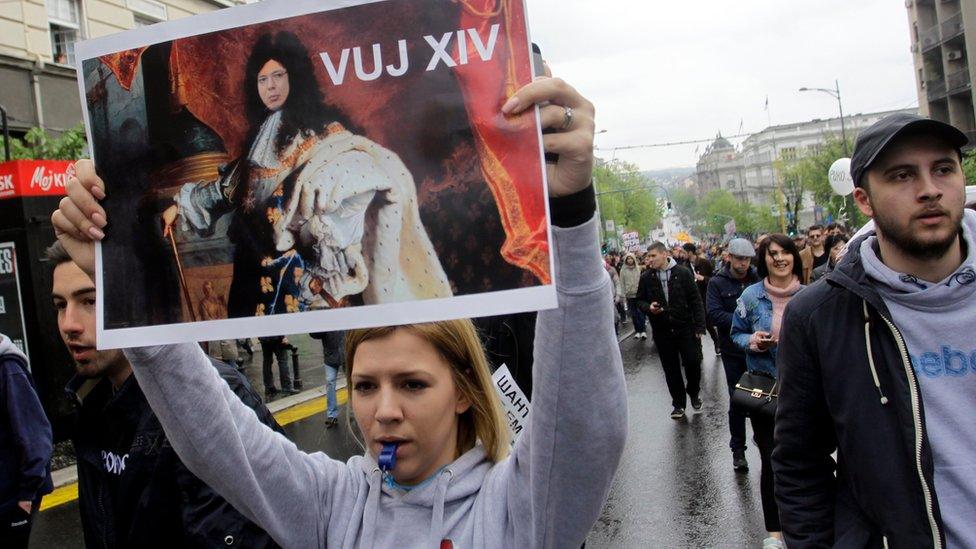
Mr Vucic, seen here as Louis XIV, had the vast majority of coverage in the run up to the vote
Mr Vucic has, thus far, remained unperturbed by the protests.
"Everyone has a right to be unhappy with the election results," he said last week. "It is fine as long as it is peaceful."
So far that has been the case. The police have shown a light touch - and so have the demonstrators, with the appearance of other placards proclaiming "Wenger Out" and "No to Salty Plazma" (a controversial savoury variant of a much-loved Yugoslav biscuit).
And if the protests and the rolling roadblocks continue, a sense of humour will be sorely needed by all concerned.
- Published18 January 2017
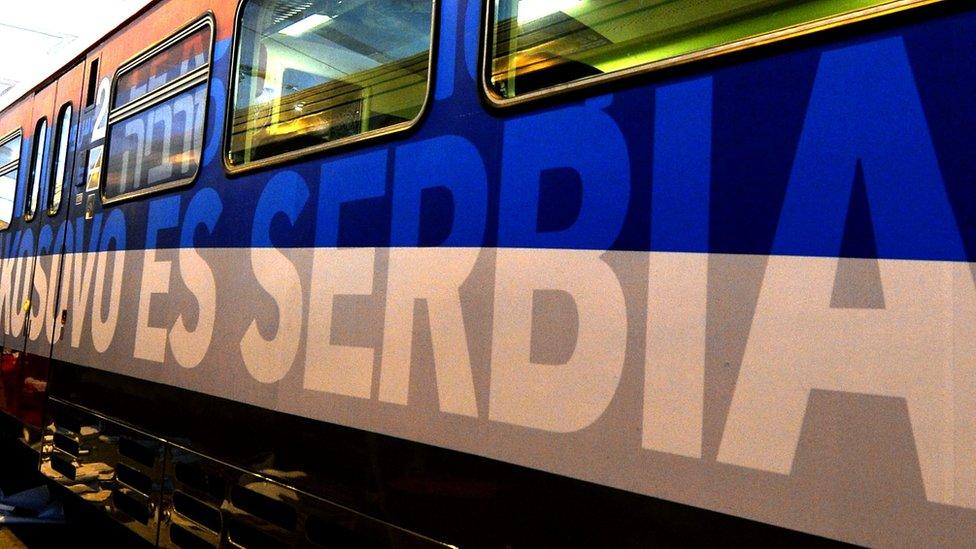
- Published3 April 2017
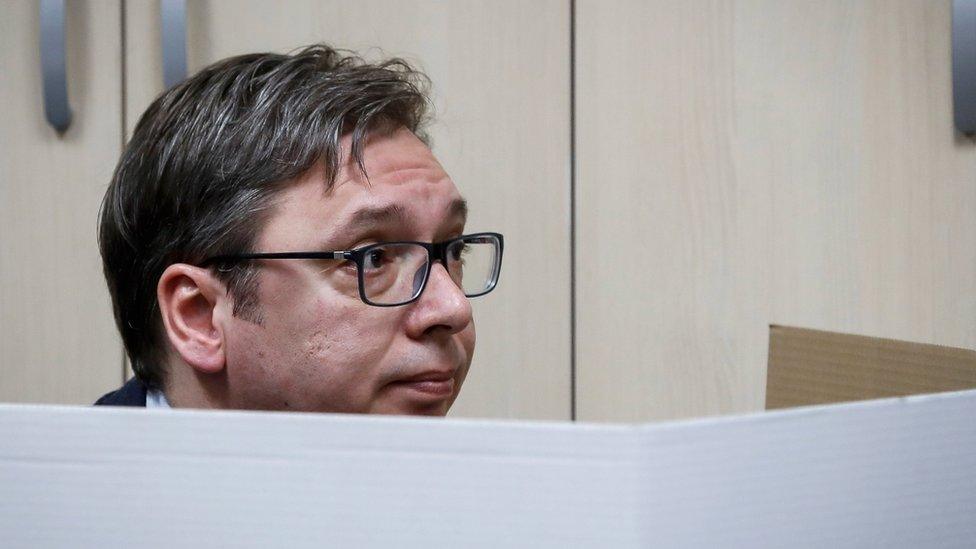
- Published1 April 2017
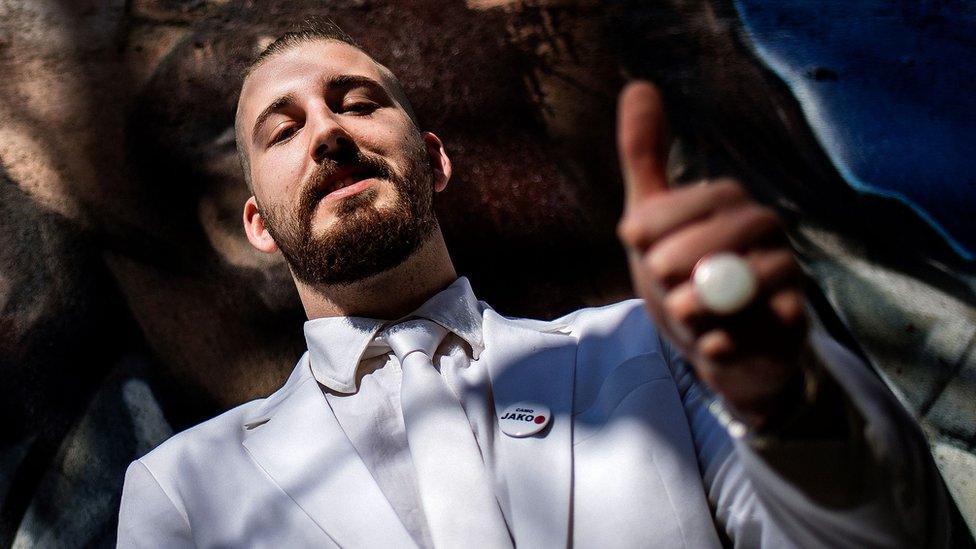
- Published12 February 2017
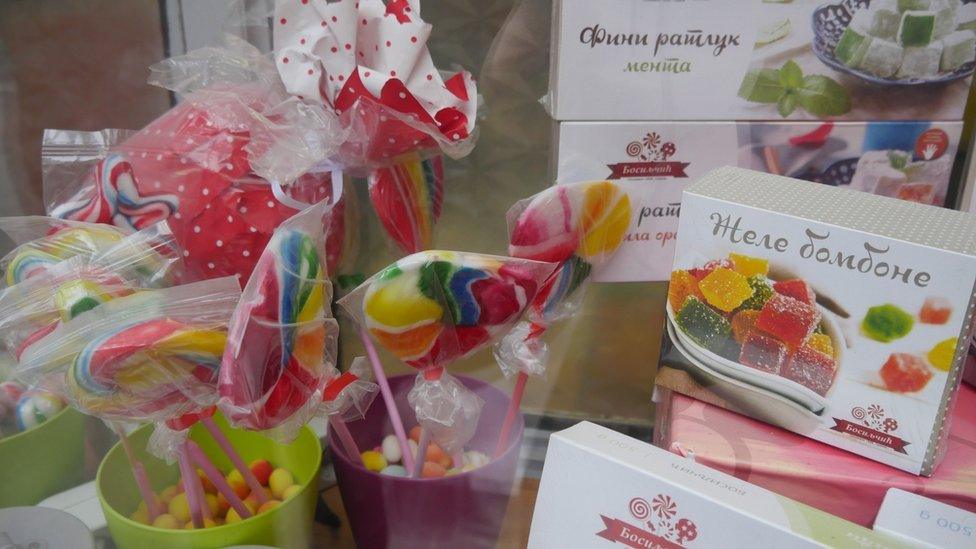
- Published27 October 2016
